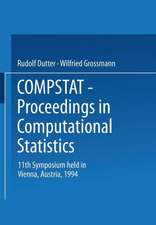The Value of Signals in Hidden Action Models: Concepts, Application, and Empirical Evidence: Contributions to Economics
Autor Wendelin Schnedleren Limba Engleză Paperback – 9 feb 2004
Din seria Contributions to Economics
- 18%
 Preț: 1001.81 lei
Preț: 1001.81 lei -
 Preț: 90.83 lei
Preț: 90.83 lei - 15%
 Preț: 649.06 lei
Preț: 649.06 lei - 18%
 Preț: 1109.92 lei
Preț: 1109.92 lei - 24%
 Preț: 657.06 lei
Preț: 657.06 lei - 18%
 Preț: 976.54 lei
Preț: 976.54 lei - 17%
 Preț: 361.01 lei
Preț: 361.01 lei - 18%
 Preț: 1027.83 lei
Preț: 1027.83 lei -
 Preț: 283.93 lei
Preț: 283.93 lei - 15%
 Preț: 644.95 lei
Preț: 644.95 lei - 15%
 Preț: 638.24 lei
Preț: 638.24 lei -
 Preț: 394.29 lei
Preț: 394.29 lei - 15%
 Preț: 636.80 lei
Preț: 636.80 lei - 15%
 Preț: 637.78 lei
Preț: 637.78 lei - 18%
 Preț: 723.69 lei
Preț: 723.69 lei - 15%
 Preț: 635.47 lei
Preț: 635.47 lei - 15%
 Preț: 634.00 lei
Preț: 634.00 lei -
 Preț: 392.75 lei
Preț: 392.75 lei -
 Preț: 383.33 lei
Preț: 383.33 lei - 15%
 Preț: 637.28 lei
Preț: 637.28 lei - 15%
 Preț: 636.80 lei
Preț: 636.80 lei - 18%
 Preț: 950.96 lei
Preț: 950.96 lei - 15%
 Preț: 634.68 lei
Preț: 634.68 lei -
 Preț: 387.38 lei
Preț: 387.38 lei - 15%
 Preț: 647.27 lei
Preț: 647.27 lei - 15%
 Preț: 636.63 lei
Preț: 636.63 lei - 15%
 Preț: 639.73 lei
Preț: 639.73 lei -
 Preț: 385.62 lei
Preț: 385.62 lei - 15%
 Preț: 641.85 lei
Preț: 641.85 lei - 20%
 Preț: 649.60 lei
Preț: 649.60 lei - 15%
 Preț: 641.71 lei
Preț: 641.71 lei -
 Preț: 387.96 lei
Preț: 387.96 lei - 15%
 Preț: 645.47 lei
Preț: 645.47 lei -
 Preț: 385.08 lei
Preț: 385.08 lei - 15%
 Preț: 646.62 lei
Preț: 646.62 lei -
 Preț: 383.33 lei
Preț: 383.33 lei - 15%
 Preț: 638.43 lei
Preț: 638.43 lei - 15%
 Preț: 642.51 lei
Preț: 642.51 lei - 15%
 Preț: 637.78 lei
Preț: 637.78 lei - 15%
 Preț: 641.71 lei
Preț: 641.71 lei -
 Preț: 384.70 lei
Preț: 384.70 lei -
 Preț: 379.86 lei
Preț: 379.86 lei -
 Preț: 378.34 lei
Preț: 378.34 lei -
 Preț: 384.70 lei
Preț: 384.70 lei -
 Preț: 388.52 lei
Preț: 388.52 lei - 15%
 Preț: 641.71 lei
Preț: 641.71 lei -
 Preț: 381.00 lei
Preț: 381.00 lei - 15%
 Preț: 644.95 lei
Preț: 644.95 lei -
 Preț: 386.00 lei
Preț: 386.00 lei
Preț: 381.21 lei
Nou
Puncte Express: 572
Preț estimativ în valută:
72.94€ • 76.36$ • 60.36£
72.94€ • 76.36$ • 60.36£
Carte tipărită la comandă
Livrare economică 07-21 aprilie
Preluare comenzi: 021 569.72.76
Specificații
ISBN-13: 9783790801736
ISBN-10: 3790801739
Pagini: 172
Ilustrații: VIII, 162 p.
Dimensiuni: 155 x 235 x 9 mm
Greutate: 0.25 kg
Ediția:Softcover reprint of the original 1st ed. 2004
Editura: Physica-Verlag HD
Colecția Physica
Seria Contributions to Economics
Locul publicării:Heidelberg, Germany
ISBN-10: 3790801739
Pagini: 172
Ilustrații: VIII, 162 p.
Dimensiuni: 155 x 235 x 9 mm
Greutate: 0.25 kg
Ediția:Softcover reprint of the original 1st ed. 2004
Editura: Physica-Verlag HD
Colecția Physica
Seria Contributions to Economics
Locul publicării:Heidelberg, Germany
Public țintă
ResearchCuprins
Effort Misallocation and the Value of Signals.- 2.1 Problems of Non-contractibility.- 2.2 Decomposing Agency Costs.- 2.3 Relationship between Misallocation and Uncertainty.- 2.4 Summary.- Firm Performance Measures.- 3.1 Multiple Agents and Free-Riding.- 3.2 The Use of Benefit Signals.- 3.3 Implications and Implementation.- 3.4 Summary.- Statistical Model and Empirical Evidence.- 4.1 Empirical Studies of the Value of Signals.- 4.2 The ECMOSS Data Set.- 4.3 Estimation Under Multivariate Censoring.- 4.4 Results.- 4.5 Summary.- Conclusion.- A Properties of the Multivariate Censoring Estimator.- B Stata Programme.- B Stata Programme.- C Tables.- References.- List of Figures.- List of Tables.- List of Symbols.
Textul de pe ultima copertă
What happens if A wants to buy a good or service from B, but not all relevant characteristics can be fixed in a contract? This book gives a non-technical overview of various models dealing with this situation. Particular emphasis is put on the problem that the service includes various tasks and B is paid by a performance measure (signal). As a result, B might choose the wrong allocation of effort between tasks. Of course, the wrong allocation entails costs. A method to calculate these costs is suggested and it is explored how and when these costs occur. Some performance measures seem to be less prone to misallocation such as measures of firm performance. Consequently, one expects more use of firm performance measures when misallocation can be a problem. This hypothesis is examined empirically.
Caracteristici
Includes supplementary material: sn.pub/extras



















